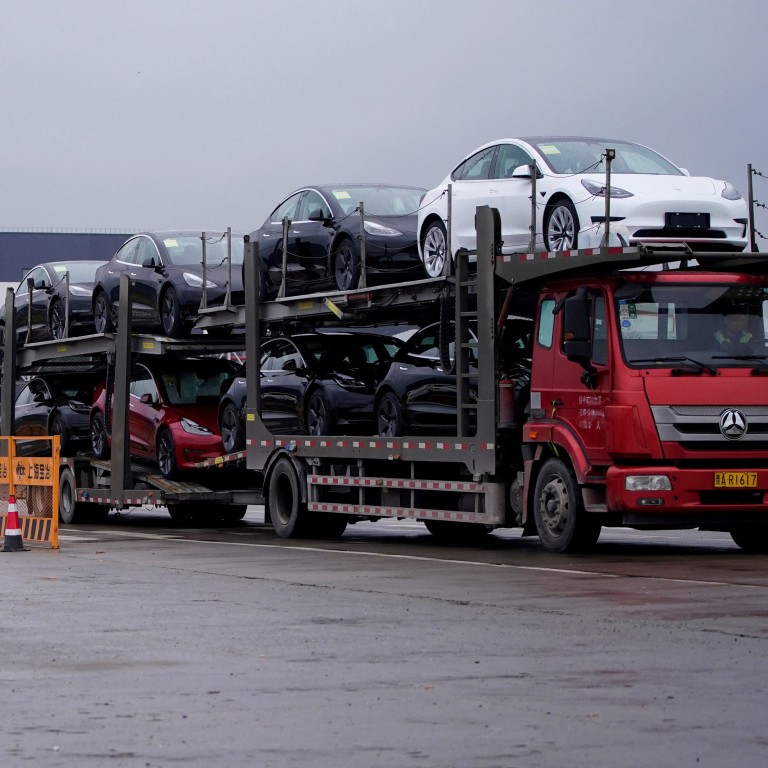
Tesla may end up the only victim as Canada mulls punitive tariffs on Chinese-made EVs
- The only battery-powered car built in China and exported to Canada is Tesla’s Model Y assembled at its Shanghai factory that is currently subject to a 6 per cent import tariff
“Canadian workers and the auto sector are facing an intentional, state-directed policy of overcapacity, undermining the Canadian EV sector’s ability to compete in domestic and global markets,” Chrystia Freeland, deputy prime minister and finance minister, said in the statement.
“This consultation will consider what action we can take to protect our workers, level the playing field, and prevent transshipment or oversupply from China’s anticompetitive practices.”
The consultation will also seek feedback on cyber and data security related to protecting Canadians’ privacy and national security interests.
“China’s unfair trade practices include weak standards across EV supply chains, including poor labour standards, a lack of environmental protections, and trade policies supporting oversupply,” the statement added.
“The impact on Chinese EV builders appears to be limited,” said David Zhang, general secretary of the International Intelligent Vehicle Engineering Association. “In the long term, trade barriers will not prevent global customers from accessing value-for-money Chinese EVs because those cars can be built at local factories.”
China is now the world’s largest automotive and EV market, with electric cars accounting for 60 per cent of global sales.
On June 12, the European Union (EU), following a nine-month anti-subsidy investigation, decided to levy additional duties ranging from 17.4 per cent to 38.1 per cent on Chinese-made pure-electric cars. They will provisionally come into effect on July 4.
The final decision will be made in November after consultations between EU members and Chinese EV makers.
BYD, the world’s bestselling EV producer, will be able to digest the punitive 17.4 per cent tariff banking because of its cost-effectiveness, analysts said.
The company has a sustainable 25 per cent cost advantage over traditional marques in the EU, according to a teardown report published by UBS last September.


.jpg?itok=Qexy_wA0)